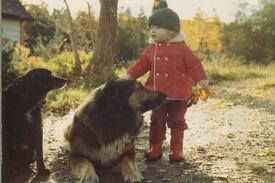do you count vegetables
Options
Replies
-
Do what works for you. Picking some things to log and not others wouldn't work for me at all.
I like logging everything because I get a good idea of how many calories are going into my body each day. If you don't log, you don't really know
0 -
Of course! I'm counting calories - veggies have calories - therefore I log veggies! Also if you're tracking your macros at all you'll want to account for everything you eat.
If I'm going to pretend something doesn't have calories it is going to be chocolate and not veggies!! 0
0 -
Yes, of course I count veggies ... they don't necessarily have a lot of calories, but for example, the steamed veggies I have for lunch can add up to about 80 cal.0
-
yes i log everything
Veggies spices herbs etc.
Not only for the calories but the macro's are also important to me. Veggies and herbs/spices can have a lot potassium 0
0 -
Ready2Rock206 wrote: »Of course! I'm counting calories - veggies have calories - therefore I log veggies! Also if you're tracking your macros at all you'll want to account for everything you eat.
If I'm going to pretend something doesn't have calories it is going to be chocolate and not veggies!!
I'm going to declare pizza my non-loggable food.0 -
You have to count ev.er.y.thing. Even herbs and spices. ( you would be amazed at the calories in a teaspoon of allspice...) Some veggies are higher in calories than others.
Simple concept. If it has calories, weigh it log it ,and as long as it is within your calorie budget, enjoy it.
You are of course going to get to eat a bigger volume of veggies to get the same calories as a small volume of something like cheese or meat.0
Categories
- All Categories
- 1.4M Health, Wellness and Goals
- 391.6K Introduce Yourself
- 43.5K Getting Started
- 259.7K Health and Weight Loss
- 175.6K Food and Nutrition
- 47.3K Recipes
- 232.3K Fitness and Exercise
- 393 Sleep, Mindfulness and Overall Wellness
- 6.4K Goal: Maintaining Weight
- 8.5K Goal: Gaining Weight and Body Building
- 152.7K Motivation and Support
- 7.8K Challenges
- 1.3K Debate Club
- 96.3K Chit-Chat
- 2.5K Fun and Games
- 3.3K MyFitnessPal Information
- 23 News and Announcements
- 934 Feature Suggestions and Ideas
- 2.3K MyFitnessPal Tech Support Questions





